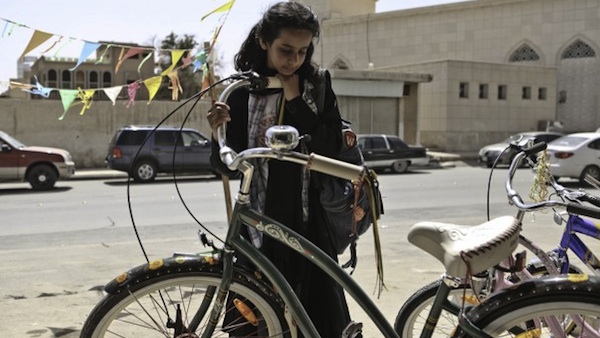2014 Oscar Predictions: Surveying the Foreign Language Field

No Oscar category offers as many surprises as Best Foreign Language Film. From countries’ submission process to the shortlist to upset winners, it’s never an easy place to offer predictions. We’re in the very early stages this year, which means its an especially foolhardy undertaking, but if it means getting good, small films on your radar, I’m all about it. So with that said, I give you the ten likeliest 2014 Best Foreign Language Film nominees, presented in alphabetical order:
Bethlehem (Israel)
Israel is a pretty reliable contender in recent Academy history (it earned nominations in 2012, 2010, 2009, and 2008), so its submissions will always attract a decent amount of attention. Bethlehem‘s buzz is a little muted, but it seems accessible, which could help its case.
Child’s Pose (Romania)
Romania hasn’t had the same success with Oscar that it’s had with critics and cinephiles over the past decade or so. Despite producing such outstanding films as 4 Months, 3 Weeks and 2 Days; Police, Adjective; and The Death of Mr. Lăzărescu, Romania has yet to earn recognition in this category. Is Child’s Pose the title to end the drought? I’m unsure. But with so few (relatively) high-profile titles on the long list, it deserves a mention.
The Broken Circle Breakdown (Belgium)
Belgium’s horse in the race is a tricky film (and one of only two in contention that I’ve seen). I called it “a love it AND hate it film,” which is to say there are elements I adore about this cross-cutting romance between ill-fated parents, but it’s sometimes painfully tasteless and heavy-handed. Still, it’s a very emotion-driven movie, and if its tragedy connects with voters, I could easily see it sliding into one of the five nominations.
Gabrielle (Canada)
Canada has earned a nomination in this category in each of the last three years. Gabrielle doesn’t have the festival pedigree of an Incendies or a Monsieur Lazhar, but it nevertheless must be considered a contender. It’s reportedly in the vein of these other films, which suggests those responsible for deciding these things on the Canadian side know how to play the game.
The Hunt (Denmark)
Thomas Vinterberg’s latest—out of Denmark, of course—is still for my money one of the year’s best films, and it’s nice to see it’s a consensus nominee for most prognosticators. Vinterberg’s The Celebration earned the same nomination in 1999, and I’d argue The Hunt is more inviting, easier to sink one’s teeth into.
Ilo Ilo (Singapore)
It’s the category’s little engine that could. Ilo Ilo, out of Singapore, has scored a number of upset victories on the circuit so far. It won the Camera d’Or at Cannes, the Sutherland Award at the London Film Festival, and Best Picture at Asia’s Golden Horse Awards. Why not an Oscar next?
The Past (Iran)
Two years removed from winning an Oscar for A Separation, Asghar Farhadi is back with a film that’s only slightly less well-received. The Past took home the Best Actress award at Cannes this past May, and Berenice Bejo, it should be noted, has an outside shot at an Oscar nomination in the same category. If it pulls that feat off, look for it to win this award in a walk. Even if Bejo misses out, though, The Past can still take home gold. It’s a Sony Pictures Classics property, which always seems to mean good things in this particular category (see also: Amour, A Separation, In a Better World, The Secret in Their Eyes, The Lives of Others).
Renoir (France)
It wasn’t the Palme-d’Or-winning Blue Is the Warmest Color that earned France’s slot on the long list (it was ineligible due to its French release date), nor was it In the House, Populaire, or Bastards—all higher-profile French films than Gilles Bourdos’ Renoir biopic. Still, it’s France we’re talking about—the country with the most nominations in this category. Renoir—a mildly received film of the category ever saw one—is nonetheless in the mix.
The Rocket (Australia)
Australia’s entry into the race started at Berlin and picked up Audience Awards at various festivals throughout the year. It sounds like a twee film, but those who’ve seen it say it packs an emotional punch like few other films in the race. If it makes Academy members feel similarly, it’ll earn a nod for sure.
Wadjda (Saudi Arabia)
Your de facto frontrunner at this still-too-early-to-know-much stage of the race. Wadjda—another Sony Pictures Classics property—is the first Saudi Arabian film to ever be submitted for an Oscar, and it’s also the nation’s first film ever directed by a woman. Those are some damn powerful narratives, and if you consider the way critics have fawned over the film (comparisons to Bicycle Thieves have been put out there), you have to look at Wadjda as a serious player in this race.













